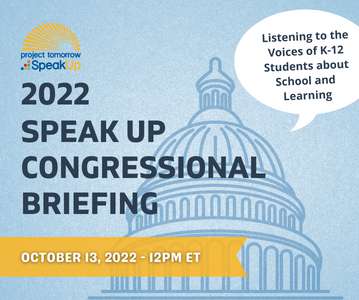U.S. K-12 Educational Technology Policy: Historical Notes on the Federal Role
Doug Levin
APRIL 21, 2016
FY 2003 $700,500,000. The Effectiveness of Educational Technology: Issues and Recommendations for the National Study (Mathematica Policy Research, 2003). Dear Colleague Letter: Resource Comparability , which emphases technology-related equity issues (October 2014). FY 2004 $695,900,000 (President Bush’s request: $700,500,000).














Let's personalize your content